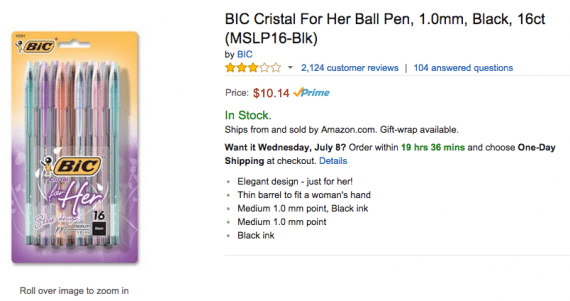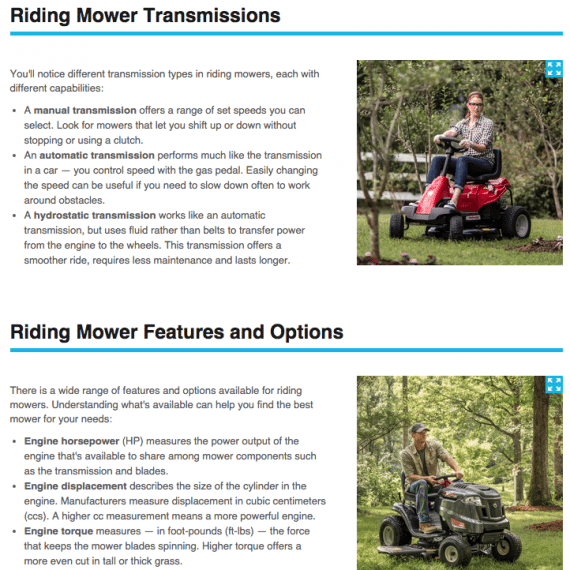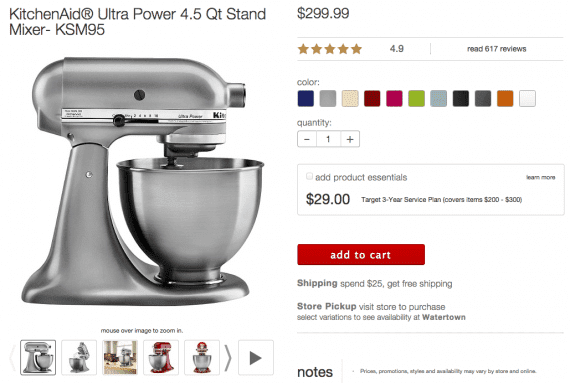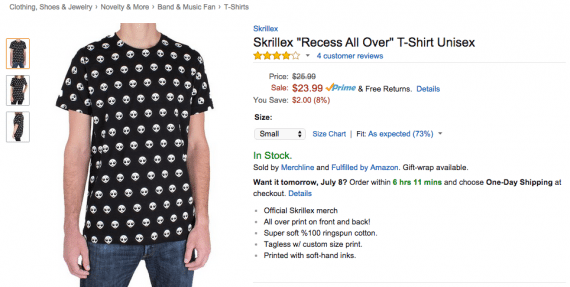Many major brands successfully market gender-specific products. Most of these items rely on trigger words and colors to make them stand out. For example, BIC produced its popular pens in pastel colors and used the words “for Her” on the packaging.
While manufacturers can be successful producing items in different colors and sizes for men and women, unisex items — especially clothing and housewares — can be mistaken as gender-specific products solely because of presentation.
When trying to reach the masses, focus on images, descriptions, and features that remove all doubt. In other words, send the message that these particular products are suitable for both genders.
Images Send the Most Powerful Message
By incorporating a variety of images, both male and female shoppers can be targeted at the same time.
—
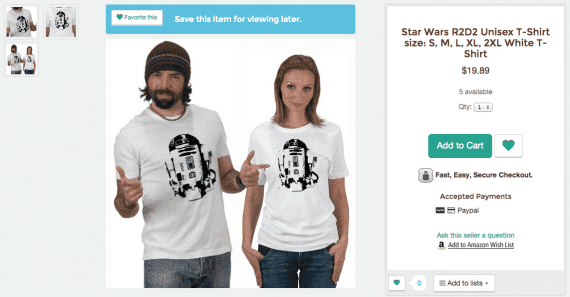
Showing both genders modeling unisex clothing helps increase conversions across men and women. Source: Artfire.com.
Another way to market to both men and women is to present the same item as two different products. This is ideal for stores that feature separate male and female categories.

Replicating products to target both men and women removes all questions. Source: Van Halen Store.
While models help sell various product lines, there are times when you’ll want to simply show the product itself. In the example below, showing only the shirt works in lieu of displaying photos of a girl and a boy.
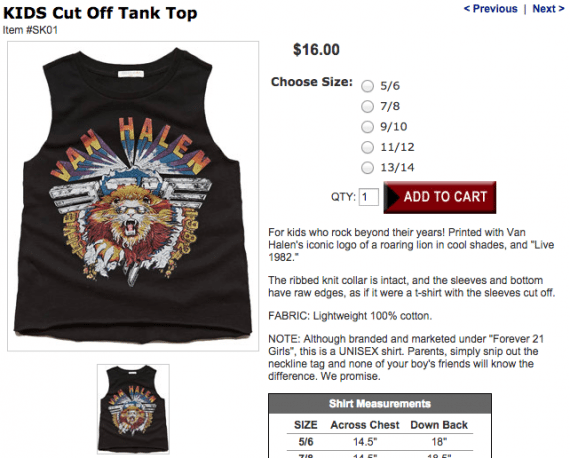
Van Halen Store sells a unisex shirt initially marketed for girls.
Choosing the Right Primary and Thumbnail Images
When cross-categorizing unisex items, especially clothing, consider which image types best sell to both genders.
For products available in different colors, choose neutral ones for main images. Black, chrome, and white are the best choices for household items.
If displaying a unisex item as a single product, use a naked photo (sans model) for the main image, and male and female models as secondary.
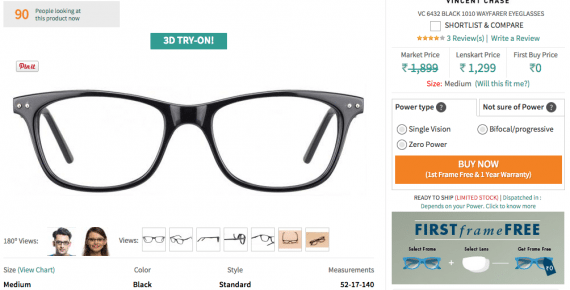
Using a naked image as the primary photo, and gender-specific ones as alternatives, makes the message clear: anyone can wear these glasses. Source: Lenskart.com.
Choosing the Right Words
For unisex items, avoid using words that are too feminine or masculine. Instead, use a mixture of words that work for both genders.
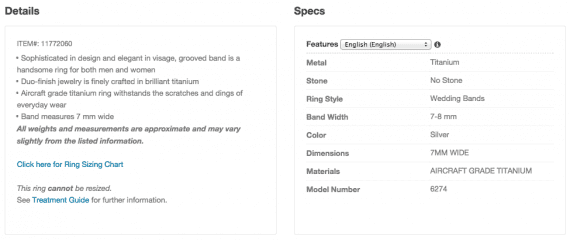
Overstock.com uses a bullet point to describe a unisex wedding ring as “for both men and women.” Note the usage of “sophisticated” and “handsome” in the same sentence.
—
For more generalized products, explain features in different ways. A woman may want a powerful blender, but she may not know how the horsepower translates to how well the unit crushes ice or chops vegetables. She’s typically more concerned than men about how to clean the appliance and wants to know if it’s easy to maintain.
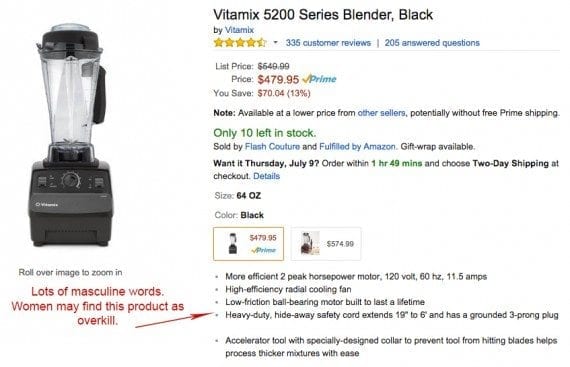
This description for the Vitamix blender focuses on power and acceleration. It does little to explain ease of use and cleaning and versatility — features important to most women. Source: Amazon.
Don’t forget to include the word unisex in the title, description, and search terms. This will help those searching only for unisex items to be presented all applicable results. You’ll also want to configure the store’s search function to use an AND operator, and display AND before OR. For example, at American Eagle Outfitters, a search for “unisex shirt” returned 765 items — the bulk of which use male models in thumbnails, followed by several women-only products. A search for just “unisex” returned only two items.
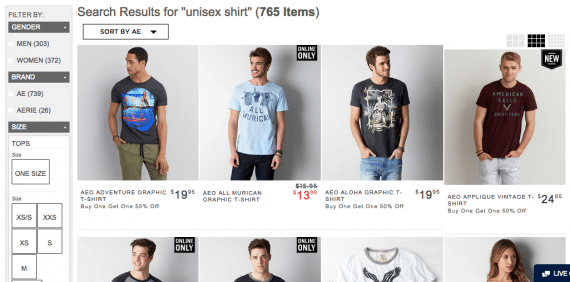
A search running the OR operator only returns too many products that are not unisex. Source: American Eagle Outfitters.
The same 2-word search at Overstock.com returned 50 products, all shirts labeled as “unisex.”

Using the AND operator on search makes it easy for those searching for unisex items to see only what is applicable. Source: Overstock.com.
Finding the Way They Think
Men and women think differently. Many decisions to not buy an item are subconscious, which means customers may not be able to tell you exactly why. It’s important to research and analyze which terms work best for each type of product.
To analyze how well products do with men versus women, use demographic reporting in Google Analytics. This will also let you see results based on age groups, which can help you further determine the best word choices.
Want to know the best ways to write product descriptions so they cater to both sexes? Pick a few products and have both a man and woman tell you what they know about them — and also ask questions to each. Use the information to integrate bullet points that better explain products for everyone.

